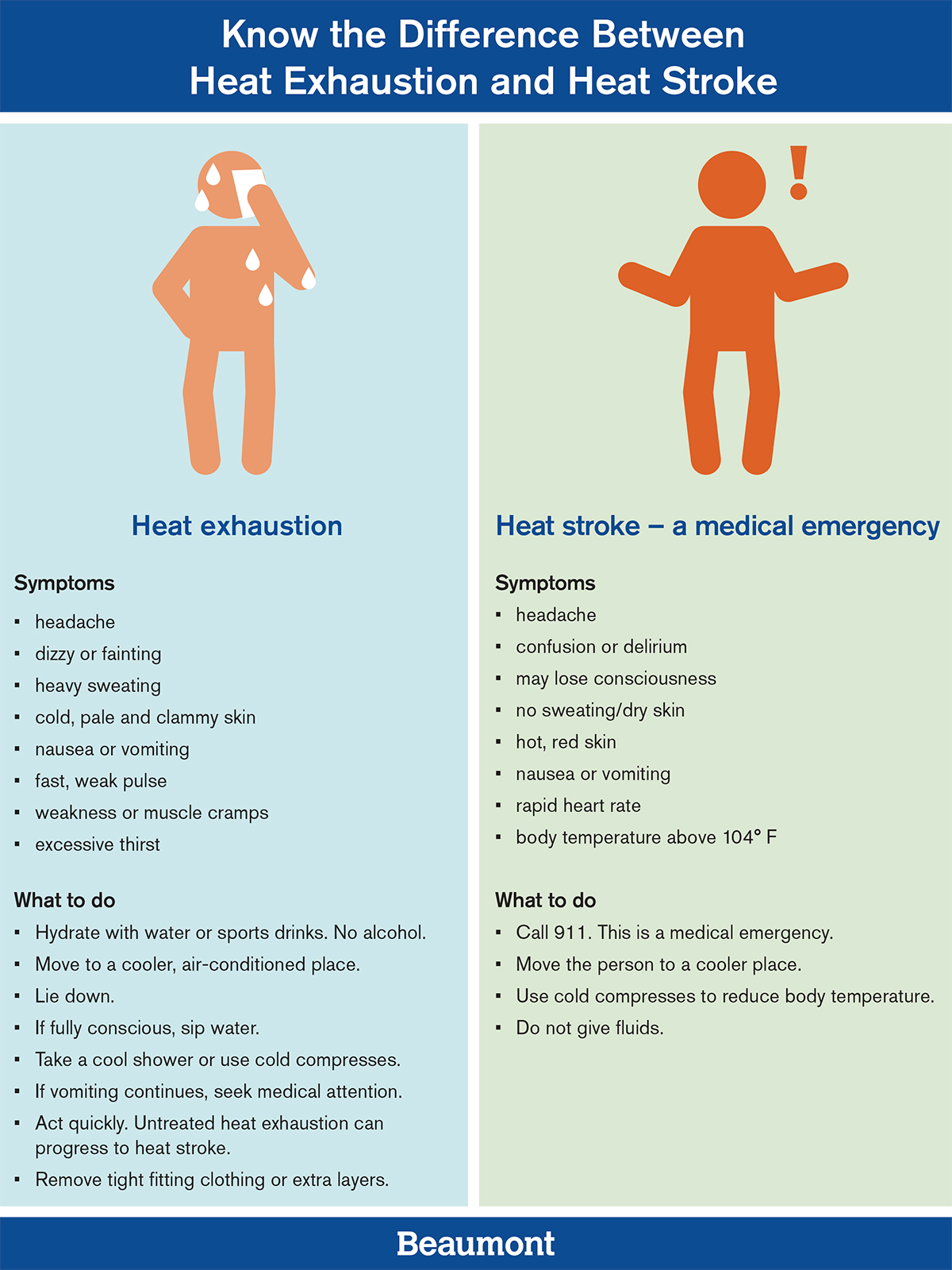
As temperatures rise during the summer months, so do visits to Beaumont emergency centers. However, with proper precautions, most heat illnesses can be prevented.
"The most important things you can do to prevent heat illnesses are to stay hydrated and limit your time in the sun," explains Dr. Sanford Vieder, chairman and medical director of the Emergency Trauma Center at Beaumont Hospital, Farmington Hills.
According to the American College of Emergency Physicians, each year about 400 deaths and thousands of emergency department visits are caused by heat illnesses. While infants and people 65 and older are most at risk for a heat related illness, it can affect anyone, even exercise enthusiasts.
The early warning signs of heat exhaustion are nausea, light-headedness, fatigue, muscle cramping and dizziness. It is imperative to recognize the warning signs and act on them as soon as possible.
At the first sign of heat exhaustion, it is important to take the following steps to help get your temperature down and cool your body:
- Move to an air-conditioned place.
- Take a cold shower or using cold compresses.
- Drink plenty of fluids.
- Remove tight or extra clothing layers.
Unlike heat exhaustion, a heat stroke requires immediate medical attention. Someone experiencing heat stroke may have a headache, confusion, no sweating, rapid heart rate, nausea or vomiting and may lose consciousness.
If a heat stroke is suspected, it is vital to take the following steps:
- Call 911 immediately.
- Move the person to a cooler place.
- Use cold compresses to get their temperature down.
- Do not give them fluids.
"Left untreated, heat exhaustion and heat stroke can lead to death. If an individual is confused, passes out, is hot, but not sweating, call 911. This is a medical emergency," says Dr. Vieder.
Protect yourself and others by downloading Know the Difference between Heat Exhaustion and Heat Stroke and be prepared for the summer heat!

